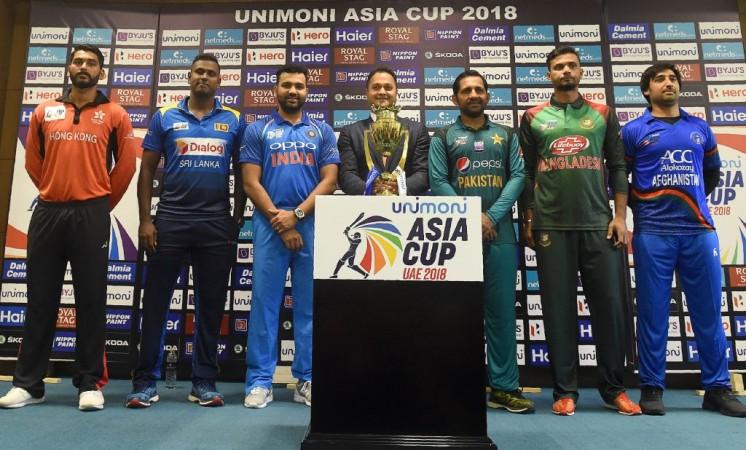Five international captains, four of them from full-members, were approached by bookies over the last one year, International Cricket Council (ICC) General Manager (Anti-Corruption) Alex Marshall has said.
The revelation from ICC comes days after Afghanistan wicketkeeper-batsman Mohammad Shahzad was approached by "suspicious people" during the ongoing Asia Cup tournament.
The approach was made not for underperforming in the continental tournament but at the inaugural edition of Afghanistan Premier League, starting October 5 in Sharjah.
Shahzad had promptly reported the approach to the team management and the matter is being looked at by the anti-corruption unit of the ICC.
"Corruptors love captains. They look for intermediaries. They look for weak links. Five international captains — four Full Members, one non-Full Member — were approached in the last one year," Marshall was quoted as saying by The Indian Express.
The data revealed by the apex body of international cricket confirms that bookies are not backing off from top teams and their captains.
Notably, in October last year, Pakistan captain Sarfraz Ahmed revealed he turned down a lucrative offer in Dubai during the ODI series against Sri Lanka.

Corruption in cricket directly proportional to rise in T20 leagues?
Meanwhile, Marshall also insisted that the corruptors love Twenty20 format of the sport and revealed some corruptors even design their own private leagues to facilitate corruption.
The ICC has been wary of sanctioning ever-growing T20 leagues and several cricket bodies have restrictions on their players participating in non-sanctioned leagues.
However, ICC chief executive David Richardson said it's unfair to relate the growth of T20 leagues to the increase in corruption. While insisting that the shortest format of the sport has helped bring in more fans, he conceded that more work needs be done to keep cricket free of corruption.
"I'm sure a lot of bookmakers like T20s. But I don't think it's correct to say that the increasing number of T20s will increase the (corruption) risk. The bottom line is that the T20 format has attracted new fans and with more people following the game, the bigger the risk that there could be efforts to corrupt the matches," Richardson said.
"So it's an indirect relationship between T20 cricket and the increase of corruption risk. But T20 cricket has increased the number of fans. And if that so happens (the increasing risks of corruption), Alex (Marshall) will have to work a little bit harder."
Marshall clarified on his earlier statement and stressed on the importance of the cricket boards and the organisers of T20 leagues to ensure anti-corruption measures are put in place and enforced.
"My point wasn't that T20s attract corruptors, but the explosion of T20 events, including some private events — and I mention some events are designed for the whole purpose of corruption — has presented a new option to corruptors," Marshall said.
"As I said earlier, responsibility also sits with the people who organise T20 events to ensure all anti-corruption measures are in place."
It is safe to say the ICC is seeing T20 cricket as the way forward in its efforts to globalise the sport. The apex body's move to scrap the 2021 edition of Champions Trophy (50-over tournament) to include another World T20 is a clear indication of their roadmap.








